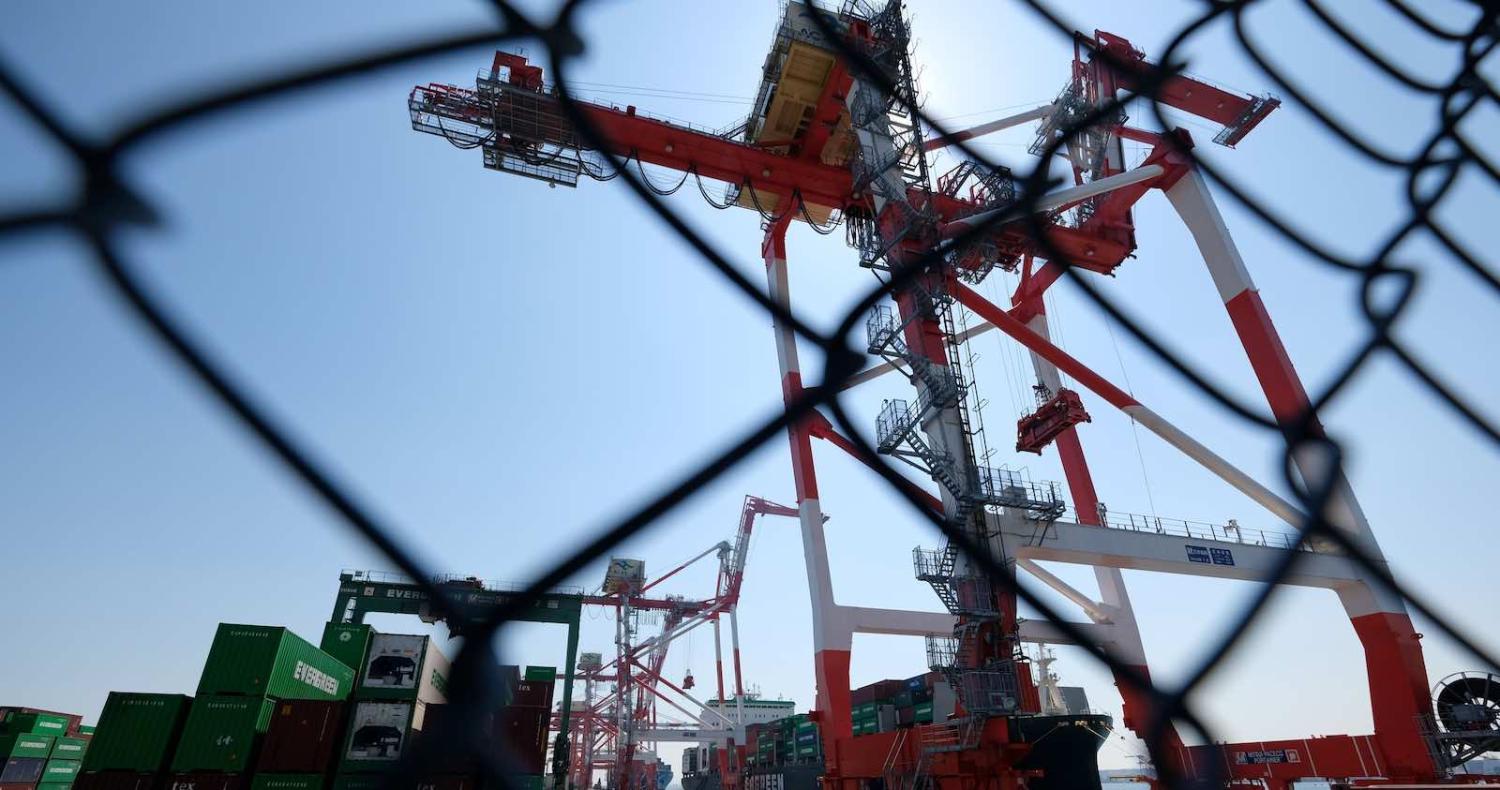As important as the health risks posed by the coronavirus pandemic and its containment are, leaders also need to start to think about the shape of the post–Covid-19 global economy.
If they don’t, we all face a serious risk of succumbing to the new anti-globalisation protectionism that is on the rise. Elements in the US are already pushing hard with rhetoric geared towards the economic decoupling of the US from China, including by referring to the virus as the “Chinese virus” or “Wuhan flu”. We need to ensure Australia does not fall into the same trap.
Our current economic reliance on China aside, China is very likely going to emerge from the coronavirus crisis much stronger economically. Just as the SARS outbreak of 2003 changed the Chinese economy, giving its tech companies new impetus, so too will the impact of Covid-19. During the SARS outbreak, fear kept many Chinese consumers home and drove them to shop online. For example, Alibaba launched its Taobao and T-mall online stores at the height of the SARS crisis, which enabled its transformation from a B2B online platform into the world’s largest consumer e-commerce company it is today.
By focusing on the fostering and amalgamation of medical, health, and technological advances, China will become the world’s leading economy sooner than expected.
E-commerce has been playing an increasingly greater role in China since the Covid-19 outbreak and lockdown of much of the country. As a result, Chinese consumers will be more inclined to purchase goods and services online than at buildings where people gather, and where infectious diseases are more easily transmissible. Even online education will become more attractive to China’s students – presenting both a risk and an opportunity for our tertiary education sector.
The obvious said, once the world’s second largest economy is firing again Beijing will also have to focus on even more transformative changes to its economy.
First, Beijing will not want a repeat of any contagious disease outbreak that could further undermine its economy and system of government. Expect to see authorities there close the country’s so-called “wet markets” and implement public-safety campaigns discouraging people from eating bats and other exotic wildlife thought to have carried the coronavirus to humans.
China also is likely to seek more clean and healthy food from abroad, which will benefit Australian food and agriculture producers and exporters. And Chinese – and other – consumers might demand more processed foods (over live exports) from Australia, which could see more value-add dollars retained here.
Secondly, Beijing will likely double down on its commitment to innovative and transformative technologies. This will see a leap across the board, extending from its leadership in drones and automation, driverless cars and better communications, and smart-cities, to especially focus on healthcare and biotechnology.
Beijing’s commitment to China becoming a global leader in biotechnology stems from President Xi Jinping’s “Made in China 2025” strategy. Rather than surreptitiously acquire these technologies from abroad, which was a major factor in the recent China-US trade war, China will this time have to entice technology firms, and particularly start-ups, from around the world to bring it to them.
This will have a major impact on global financial services, with technology developers soon to find it easier to access a more open, yet still centralised, China. Silicon Valley venture capitalists may become more critical of Washington’s talk of decoupling from China and may look for creative ways to participate in developments on the other side of the Pacific Ocean. Australian technology developers will need to look more closely at collaboration with China or risk losing out. Canberra will need to support and at least not hamper them.
This will bring Beijing to a third major initiative following the containment of the virus and repair of its economy. Beijing will have to do more than any other government to rebuild public trust. Authorities will have to demonstrate a global leadership position in medicine and health, and not just within its borders.
The most effective way to do this would be by taking a lead in technology that augments human biology – where medicine, health, science, and technology merge. For example, this is where bodies are enhanced by technology (think of contact lenses that let you connect to the internet via a screen in the lens.)
Research on such technology is already occurring in the West, but it does not receive adequate funding and often fails to progress due to incumbent prejudices and risk aversion. China will seek to become the home of such research and development. Indeed, more than 200 research facilities and more than 50 universities and colleges in China are already involved in such research. Biotechnology research centres in Shanghai and Jiangmen have received support from Beijing to bring research results to production. Beijing is likely to increase that support in the wake of the coronavirus.
This will change the world, with the arrival of developments and productivity that otherwise might not have come for decades.
The challenge is for China to demonstrate that it has a post-coronavirus plan. By focusing on the fostering and amalgamation of medical, health, and technological advances it will become the world’s leading economy sooner than expected.
If we want to continue to benefit from China’s ascendance, Australia needs to look beyond “selling stuff” to China to the next phase in our relationship, where we encourage our technology companies and research institutions to collaborate more closely with their counterparts in China. We will also need to entice Chinese investment into our tech companies – rather than just mining and agriculture.
That will require Canberra to rethink our foreign investment rules as they apply to mainland China. The question is whether it can look rationally at the new opportunities that could emerge from our largest trading partner – or will it continue to view China through the current geopolitical prism defined by Washington?

